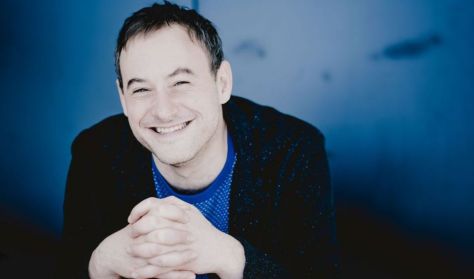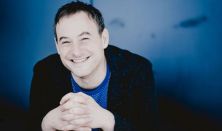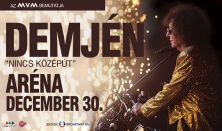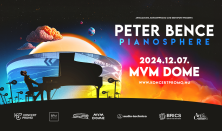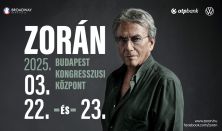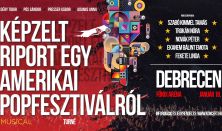Baroque concert: Vivaldi, Scarlatti, Handel
Program:
Antonio Vivaldi: Bassoon Concerto in C major, RV 473
Alessandro Scarlatti: Piango, sospiro e peno – cantata
Antonio Vivaldi: Concerto in A minor for Two Violins, Op. 3, No. 8, RV 522
Salve Regina, RV 618
George Frideric Handel: Admetus, King of Thessaly, HWV 22 – “Orride larve… Chiudetevi, miei lumi”
Julius Caesar in Egypt, HWV 17 – “Se in fiorito ameno prato”
Antonio Vivaldi: Concerto in A minor for Two Oboes, RV 536
George Frideric Handel: Agrippina, HWV 6 – “Tacerò, purchè fedele”
Rodelinda, Queen of Lombardy, HWV 19 – “Vivi, tiranno!”
This time, the authentic appearance and movement will be presented by Christophe Dumaux, whose voice was hailed as “bright, clear and strong” in a review in The New York Times, while he was described as “tall, trim and athletic: a natural on stage”. He has sung in Handel’s operas on the world’s greatest stages from the Vienna Staatsoper to La Scala in Milan to the Metropolitan Opera in New York. In addition to the opera arias, a beautiful cantata and a moving Marian hymn and concertos by Vivaldi will also be performed conducted by Jonathan Cohen, a British master of Baroque music and a return conductor of the Festival Orchestra.
Although the genre of solo concerto and the ritornello form, which is similar to the verse/chorus structure, was not invented by Vivaldi, he made them world-famous in hundreds of concertos he composed. His three-movement bassoon concerto is characterized by contrasts and dynamic dialogues.
Alessandro Scarlatti made a lasting impact in the vocal genres. Most of his nearly 700 cantatas are about love. In the composition on the program, the passion and despair are illustrated by an expressive arioso and short fragmented phrases.
Vivaldi’s set of concertos Op. 3, L’Estro Armonico (Harmonic Inspiration), is one of the most influential 18th-century compositions, and even Bach was interested in it. As opposed to the composer’s later, more experimental works, this music is rather traditional.
“Hail, holy Queen, Mother of Mercy!” This is the first line of Salve Regina. The composition setting the six verses in six movements starts from musical sighs and then, after Jesus’s lullaby, closes with warm phrases.
After his stay in Italy, Handel settled in London, where, from 1719, he was responsible for producing Italian operas. His duties also included engaging acclaimed singers, among them the greatest stars of the era, the castrati. The unique voice type, which composers loved to write for - and in which both the dying title hero of Admetus, tormented by dreams and Caesar, seduced by the disguised Cleopatra sing - is now replaced by countertenors.
Between the two Handel blocks, a Vivaldi concerto with a selection of instruments quite rare even in the composer’s oeuvre will be played. The timbre of the two oboes against the string section and their melodies in alternating thirds create a special atmosphere.
The concert concludes with two arias by Handel. The da capo, or returning form allows singers to flaunt their virtuosity and creativity through the embellishments in the repeated section and turn any aria into a sweeping finale. First, the love song of Otho, who is well-known from the story of Poppaea, will be performed from Agrippina, premiered in Venice, and then a more dramatic aria from Rodelinda, another opera composed for London, will conclude the program.
